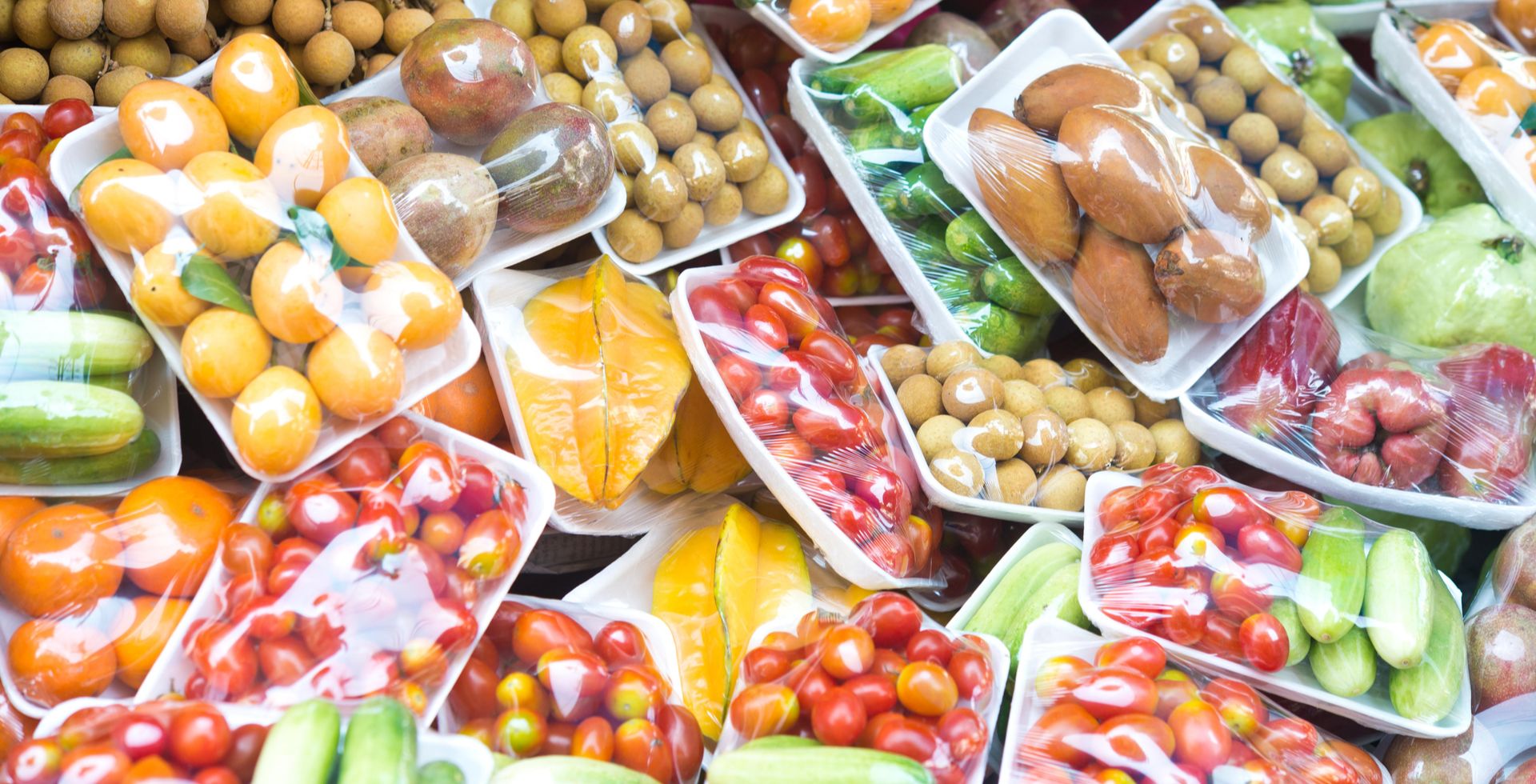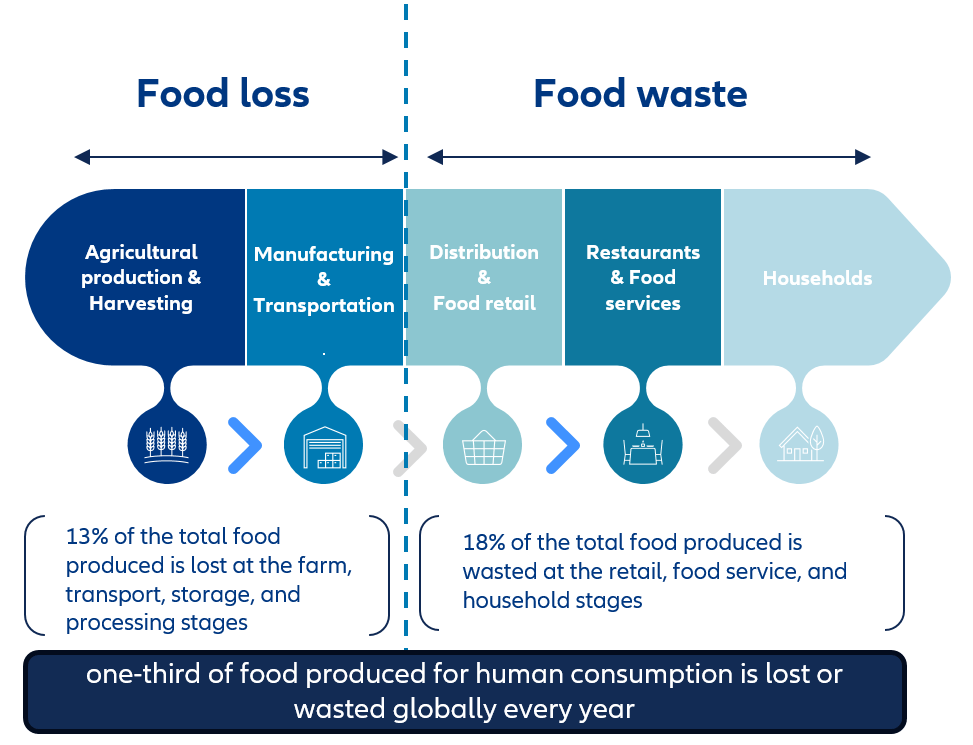Biodiversity | ~3 min read
The hidden cost of food waste

Food insecurity is a rising global threat, yet nearly a third of all food is wasted. Innovations in food production could be key to more resilient food systems, and less waste.
Hunger and malnutrition are rising around the world, with over 700 million people living with hunger.1 At the same time, more than one billion tons of food is wasted each year – an amount that could feed two billion people annually.2 Reducing food waste is essential to addressing this gap and reducing food inequality.
From farm to forgotten
Food loss is the decrease in edible food mass that occurs before it reaches the consumer, while food waste is food suitable for consumption which is discarded at the retail and consumer levels. Together these issues are reducing food availability through the entire supply chain with 13% lost between harvest and retail, while another 17-18% is wasted once it reaches consumers in shops, restaurants and at home3 (see graphic).
Accounting for 8-10% of global greenhouse gas emissions – almost five times the emissions produced by the aviation sector4 – food loss and waste contributes to climate change which further threatens food systems.
Where and how food is lost and wasted

Source: Allianz Global Investors, 2025
Digitalising food production
What are the potential solutions? The food industry is one of the least digitalised sectors, but innovative technologies have the potential to improve monitoring and optimisation of food loss and waste through the value chain. Tapping into artificial intelligence, the Internet of Things and blockchain could transform how food systems operate, with several innovations already emerging:
- Precision agriculture employs drones and sensors to monitor crop health, optimise inputs – eg, water and seeds – and reduce overproduction.
- AI-powered logistics enable accurate demand forecasting and inventory management.
- Smart packaging can improve retail systems to track freshness and minimise spoilage.
Investors’ appetite for change
Investors can play a vital role in advancing uptake of new solutions. First, they can promote accountability across the food value chain in line with the UN Sustainable Development Goal 2 which calls for systemic support to transform food. Second, by actively engaging with food manufacturers and retailers they can promote the business case for using technology to tackle the social impact of food waste.
With a growing global population set to stretch existing food systems and pricing further, the risk of greater food inequality is heightening. Solutions exist, but is there enough appetite for action on food waste?
Find out more: International Day of Awareness of Food Loss and Waste
1 WHO, the-state-of-food-security-and-nutrition-in-the-world-2024
2 UN, Global food systems "broken", says UN chief, urging transformation in how we produce, consume food, July 2023
3 UN Environment Programme, Food Waste Index Report 2024
4 World Food Programme, 5 facts about food waste and hunger | World Food Programme, 2024






